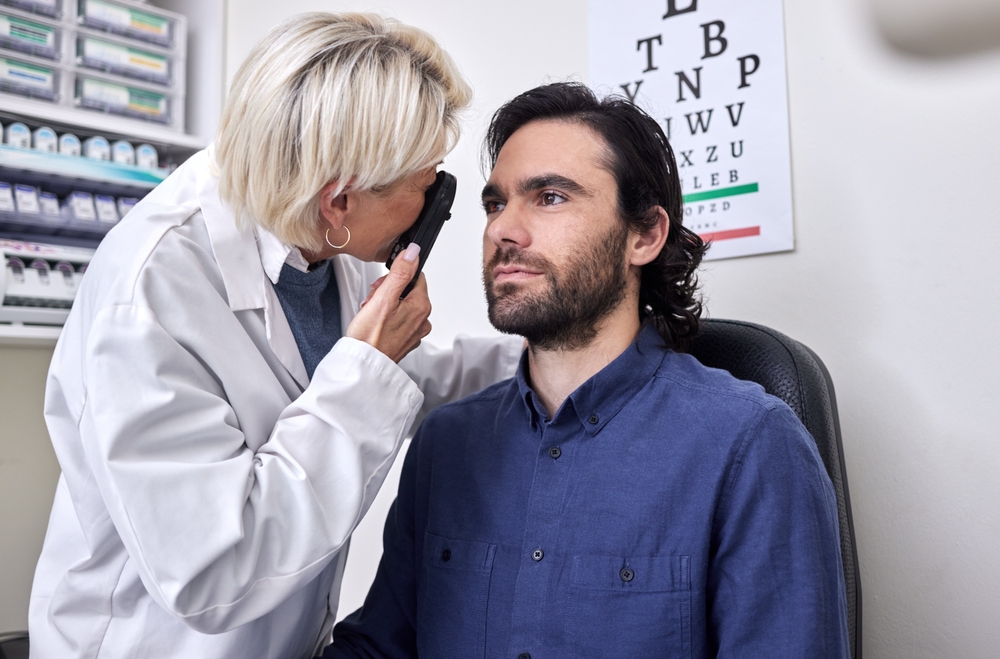What is the Difference Between an Ophthalmologist and an Optometrist?
When you need eye care, choosing the right eye doctor can feel overwhelming. Many patients wonder whether they should see an ophthalmologist or an optometrist for their vision needs.
While both professionals are often referred to as eye doctors, their training, expertise, and scope of practice differ significantly. Understanding these differences ensures you receive the most appropriate care for your specific eye health needs.
Keep reading to learn more about the differences between ophthalmologists and optometrists.
What is an Ophthalmologist?

Ophthalmologists are medical doctors who have completed extensive medical and surgical training specifically focused on eye and vision care. They hold either an M.D. (Doctor of Medicine) or D.O. (Doctor of Osteopathic Medicine) degree, making them the only eye care professionals with complete medical training.
The path to becoming an ophthalmologist requires 12 to 14 years of intensive education and training. This journey begins with a four-year college degree, followed by four years of medical school.
After medical school, ophthalmologists complete at least four additional years of specialized medical and surgical training in ophthalmology. Dr. Jeff Hutchison of Complete EyeCare West, a Doctor of Osteopathic Medicine, graduated from Anderson University and the Ohio University Heritage College of Osteopathic Medicine.
He completed his internship and residency at Doctors Hospital in Columbus, followed by additional subspecialty training as a fellow in pediatric ophthalmology and strabismus at the University of Cincinnati/Cincinnati Children’s Hospital.
What Ophthalmologists Can Do
Ophthalmologists possess the most comprehensive scope of practice in eye care. They can diagnose and treat all eye diseases, perform complex eye surgeries, prescribe medications, and fit eyeglasses and contact lenses.
Their medical training allows them to recognize systemic health conditions that may affect eye health and refer patients to appropriate specialists when necessary. Dr. Hutchison’s board certification in ophthalmology enables him to provide comprehensive eye care to patients of all ages.
His special interests include cataract surgery and pediatric eye disease and surgery. Only ophthalmologists can perform eye surgery.
Their extensive medical and surgical training prepares them to handle delicate eye procedures, from routine cataract surgery to complex retinal repairs. This surgical capability is one of the most significant differences between ophthalmologists and optometrists.
What are Optometrists?

Optometrists are healthcare professionals who provide primary vision care, but they are not medical doctors. They hold a Doctor of Optometry (O.D.) degree, which qualifies them to perform comprehensive eye examinations, diagnose certain eye conditions, and manage many vision-related problems.
Optometrists complete 2 to 4 years of college-level education followed by four years of optometry school. While this training is substantial, it differs from the medical school and residency training required for ophthalmologists.
Dr. Elizabeth Cockerill at Complete EyeCare West represents excellence in optometric care. Originally from Greenfield, Ohio, Dr. Cockerill graduated from Ohio University and The Ohio State University College of Optometry.
She enhanced her expertise by completing an ocular disease residency at The Eye Center of Toledo, demonstrating her commitment to advanced patient care.
The Role of Optometrists in Eye Care
Optometrists excel in primary eye care, performing comprehensive eye examinations, vision testing, and prescribing corrective lenses. They can detect many eye abnormalities and, in some states, prescribe medications for certain eye conditions.
Dr. Cockerill’s expertise extends to contact lens fitting and low vision rehabilitation, areas requiring specialized knowledge and skill. Her recognition as the 2009 Young Optometrist of the Year by the Ohio Optometric Association highlights her dedication to the profession.
Through her volunteer work with the Realeyes program and her role as clinical director for the Ohio Special Olympics Opening Eyes program, Dr. Cockerill demonstrates the optometry profession’s commitment to community eye health education and accessibility.
When to See an Ophthalmologist vs. Optometrist
Choose an ophthalmologist when you need:
- Surgical consultation or treatment for conditions like cataracts, glaucoma, or retinal problems
- Complex disease management for conditions such as diabetic retinopathy or macular degeneration
- Specialized pediatric eye care for children with strabismus or amblyopia
- Emergency eye care for injuries or sudden vision loss
- Comprehensive medical eye examinations that consider your overall health
Dr. Hutchison’s holistic approach as a Doctor of Osteopathic Medicine ensures he considers your eye health as part of your overall wellness, recognizing connections between systemic health and vision.
Choose an optometrist for:
- Routine eye examinations and vision screenings
- Contact lens fittings and ongoing lens care
- Eyeglass prescriptions and vision correction
- Low vision rehabilitation services
- Primary eye care and early detection of eye problems
Dr. Cockerill’s expertise in contact lenses and low vision rehabilitation makes her an excellent choice for patients needing these specialized services.
Collaborative Care at Complete EyeCare West

At Complete EyeCare West, you benefit from having both an ophthalmologist and an optometrist working collaboratively. This team approach ensures that you receive the most appropriate care tailored to your specific needs.
Dr. Cockerill can provide comprehensive primary eye care and refer complex cases to Dr. Hutchison when surgical or specialized medical intervention becomes necessary. This collaborative model eliminates the confusion of choosing between providers.
The team determines the most appropriate care pathway for each patient, ensuring seamless transitions between primary care and specialized treatment when needed.
Your Vision Deserves Expert Care
Understanding the difference between ophthalmologists and optometrists empowers you to make informed decisions about your eye care. Complete EyeCare West eliminates the guesswork by providing both types of expertise under one roof.
Whether you need routine vision care from Dr. Cockerill or specialized surgical treatment from Dr. Hutchison, the team ensures you receive appropriate, high-quality eye care tailored to your individual needs. Schedule your appointment at Complete EyeCare West in Columbus, OH, today!







